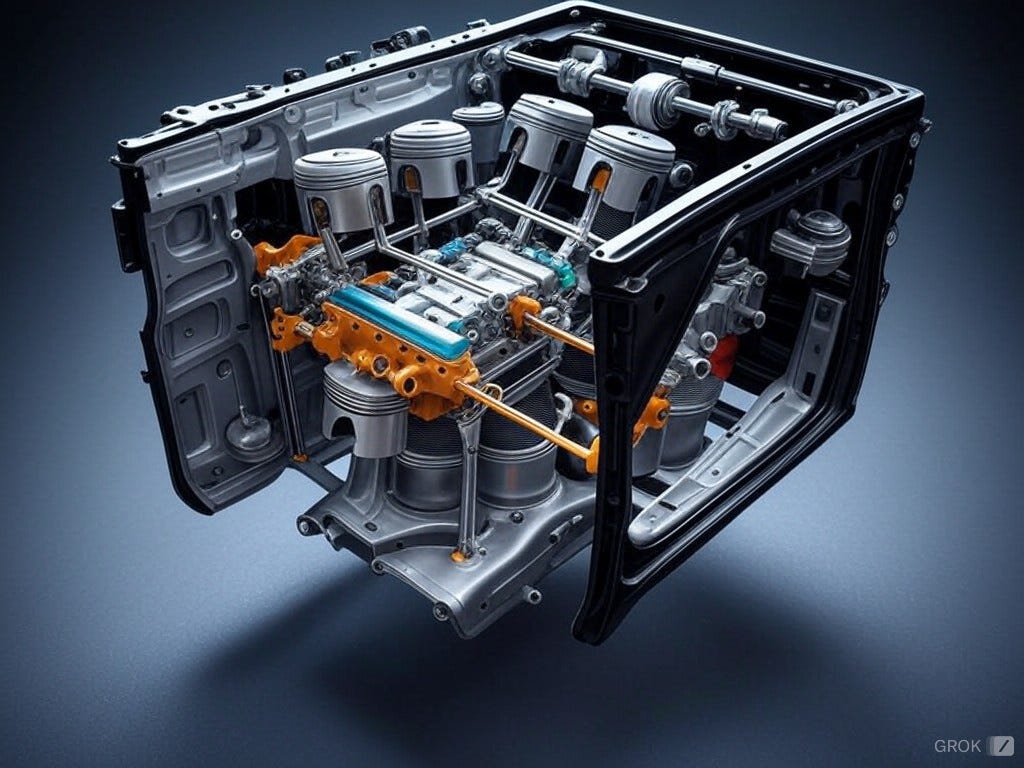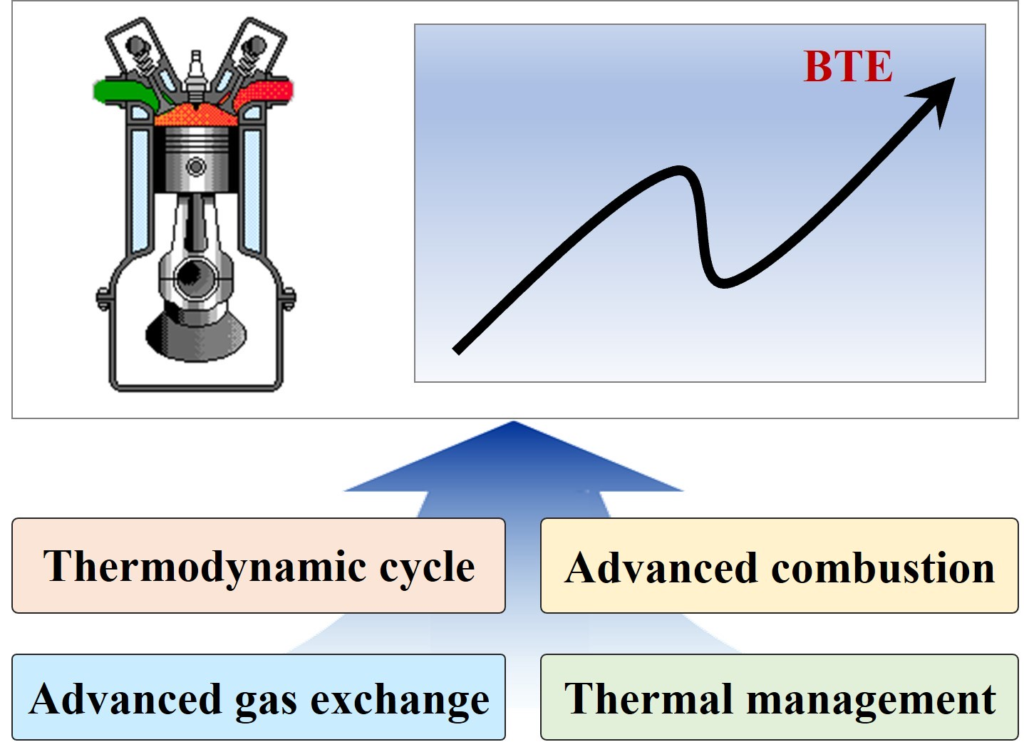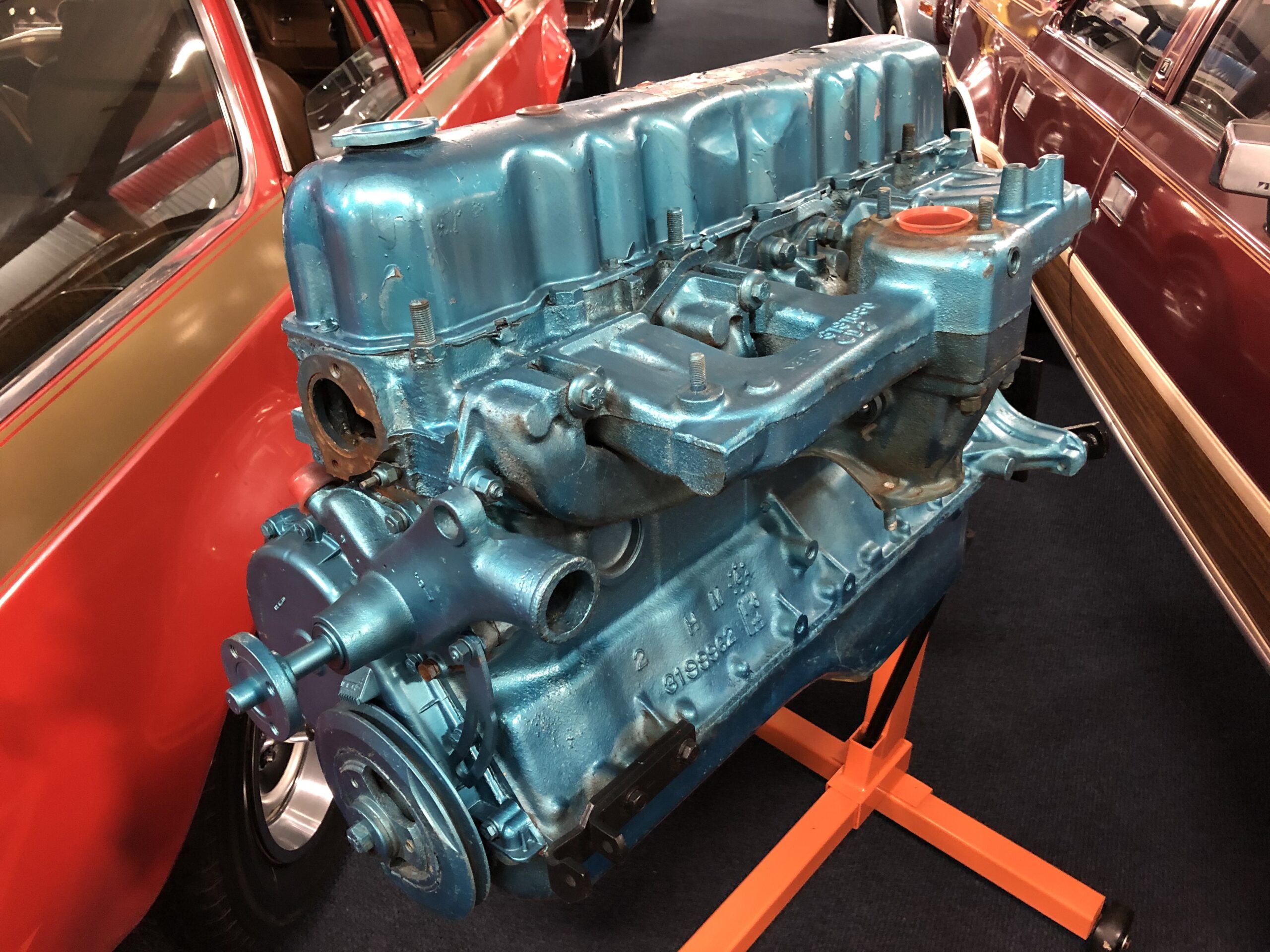Petrol engines power millions of cars around the world due to their smooth performance, quick response, and availability. However, with rising fuel prices and increasing environmental concerns, petrol engine efficiency has become more important than ever.
In this guide, we’ll explore what petrol engine efficiency really means, how it works, factors that affect it, and practical tips to improve it — all in simple language that anyone can understand.
🔍 What Is Petrol Engine Efficiency?
Petrol engine efficiency refers to how effectively a petrol engine converts chemical energy (from fuel) into mechanical energy (motion). It is measured in terms of thermal efficiency and fuel economy. The more efficiently an engine works, the less fuel it needs to produce the same power.
Typical petrol engines have an efficiency of 25–30%, which means 70–75% of the energy is lost as heat. That’s why improving engine efficiency is so important.
🧠 How a Petrol Engine Works (Brief Overview)

A petrol engine operates on the Otto cycle, which includes the following steps:
- Intake: Air-fuel mixture enters the cylinder.
- Compression: The mixture is compressed by the piston.
- Combustion: A spark plug ignites the mixture, creating an explosion that pushes the piston down.
- Exhaust: Burnt gases are expelled from the cylinder.
The energy created in this process powers the vehicle — but not all of it is used efficiently.
🔧 Factors That Affect Petrol Engine Efficiency
Here are the main reasons why your petrol engine might not be running at its most efficient:
1. Engine Design & Size
Modern engines with smaller displacement and turbochargers can deliver the same power as older, larger engines — but with better efficiency.
2. Compression Ratio
Engines with higher compression ratios are more efficient. This allows more energy to be extracted from each combustion cycle.
3. Fuel Quality
Low-quality or incorrect fuel can lead to poor combustion, knocking, and carbon buildup, reducing efficiency.
4. Air-Fuel Ratio
The ideal mixture of air and fuel ensures complete combustion. An imbalance (too rich or too lean) leads to fuel waste and reduced performance.
5. Spark Timing
Incorrect ignition timing can cause inefficient combustion, resulting in lower power output and more emissions.
6. Driving Habits
Aggressive driving, speeding, and excessive idling all reduce efficiency. Smooth, steady driving helps your engine use less fuel.
7. Engine Load
Driving uphill, carrying heavy loads, or running air conditioning all increase engine load, making the engine work harder and burn more fuel.
🛠 Tips to Improve Petrol Engine Efficiency
Here’s how you can boost your petrol engine’s efficiency and get more kilometers per liter:
✅ 1. Regular Engine Maintenance
- Change engine oil, air filters, and spark plugs on time.
- Clean fuel injectors and throttle body.
- Check for vacuum leaks or faulty sensors.
✅ 2. Use the Right Fuel
Always use the octane rating recommended by the manufacturer. Premium fuel doesn’t always mean better unless your engine requires it.
✅ 3. Monitor Tire Pressure
Under-inflated tires increase rolling resistance, forcing the engine to work harder. Keep your tires properly inflated for better mileage.
✅ 4. Drive Smoothly
Avoid rapid acceleration and harsh braking. Use cruise control on highways to maintain a consistent speed.
✅ 5. Reduce Unnecessary Load
Extra weight puts more strain on the engine. Remove roof racks, tools, and heavy items when not needed.
✅ 6. Avoid Excessive Idling
Modern petrol engines don’t need long warm-ups. Turn off the engine if you’re stopped for more than a minute.
✅ 7. Use Synthetic Engine Oil
High-quality synthetic oils reduce friction and improve engine performance and efficiency.
📈 How Is Petrol Engine Efficiency Measured?

Two main methods are used:
1. Fuel Economy (KM/L or MPG)
This is the most common measure for drivers — how many kilometers you get per liter of petrol.
2. Thermal Efficiency (%)
This is used by engineers to evaluate how much of the fuel’s energy is converted into mechanical work.
Modern petrol engines, with technologies like direct injection, variable valve timing (VVT), and turbocharging, are achieving better thermal efficiencies than ever before — up to 40% in some cases.
🌍 Petrol Engine Efficiency and the Environment
Improved engine efficiency means:
- Lower carbon emissions
- Reduced air pollution
- Lower fuel consumption
- Better compliance with emission standards (Euro 6, BS6)
So, keeping your petrol engine efficient isn’t just good for your wallet — it’s good for the planet too.
⚙️ New Technologies Enhancing Petrol Engine Efficiency
- Cylinder Deactivation: Shuts down cylinders when not needed.
- Start-Stop System: Turns off engine during idling.
- Turbocharged Downsizing: Smaller engines with turbos for better power and fuel economy.
- Gasoline Direct Injection (GDI): Precise fuel delivery increases power and reduces waste.
FAQ’s
1. What is the ideal way to drive for maximum petrol engine efficiency?
Driving smoothly, avoiding rapid acceleration or harsh braking, and maintaining a steady speed improves petrol engine efficiency and increases fuel mileage.
2. Does using premium petrol improve engine efficiency?
Only if your car’s engine is designed for high-octane fuel. Otherwise, using premium petrol in a regular engine will not significantly improve performance or efficiency.
3. How often should I service my petrol engine for best efficiency?
Follow your vehicle manufacturer’s service schedule, but ideally, basic maintenance like oil changes and filter replacements should be done every 5,000–10,000 km.
4. Can engine tuning increase petrol engine efficiency?
Yes, professional engine tuning can optimize air-fuel ratios and ignition timing, which may lead to better fuel economy and performance when done correctly.
5. What causes a sudden drop in fuel efficiency in petrol engines?
Common reasons include dirty air filters, underinflated tires, faulty oxygen sensors, old spark plugs, or poor driving habits.
6. Does engine size affect fuel efficiency in petrol cars?
Yes, smaller engines are generally more fuel-efficient. However, turbocharged small engines can offer a balance of power and efficiency compared to larger naturally aspirated ones.
Conclusion
Petrol engine efficiency is the key to better performance, longer engine life, and lower fuel costs. By understanding how petrol engines work and taking simple steps to care for them, you can enjoy smoother drives, save more money, and reduce your carbon footprint. Whether you’re a daily commuter or a weekend road-tripper, a more efficient engine means a better driving experience — for you and for the environment.




